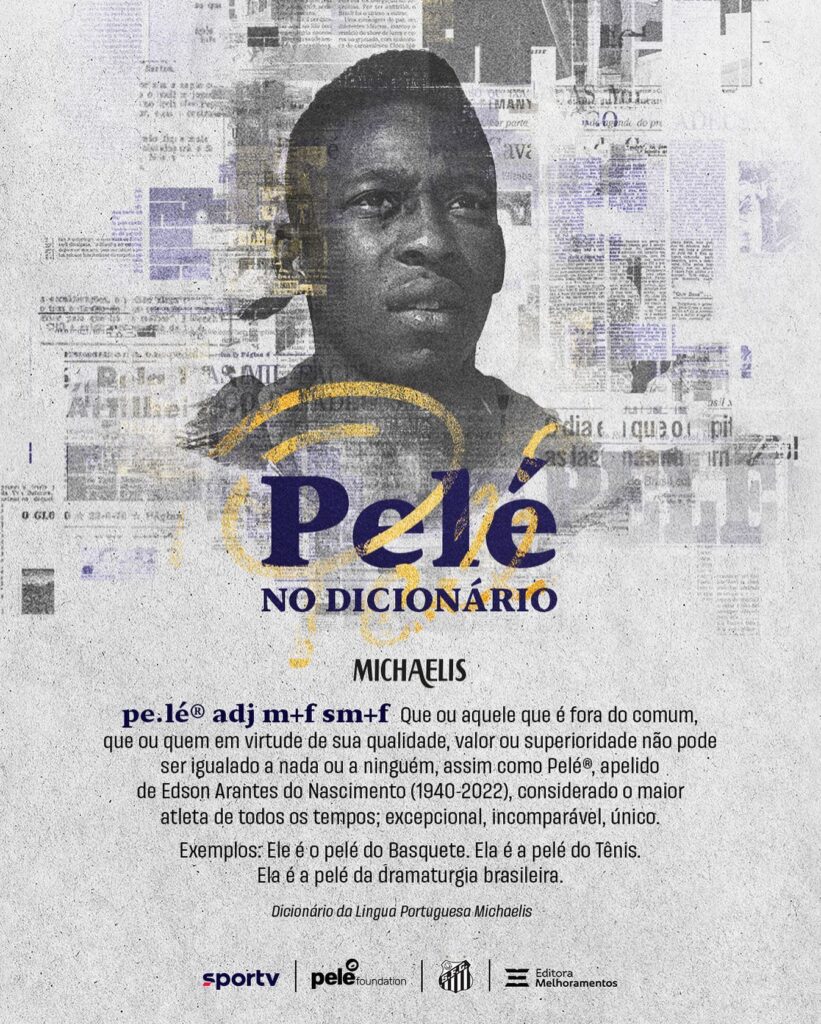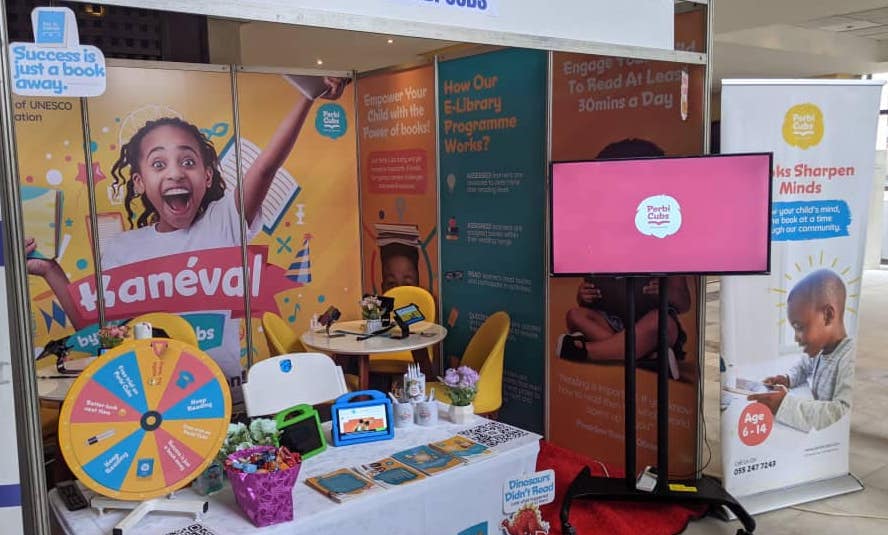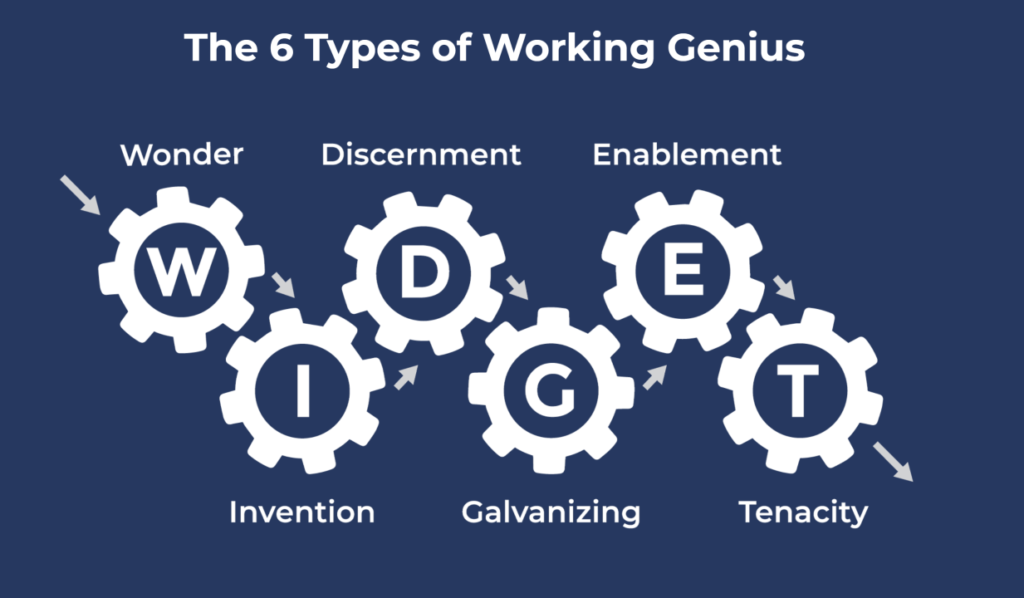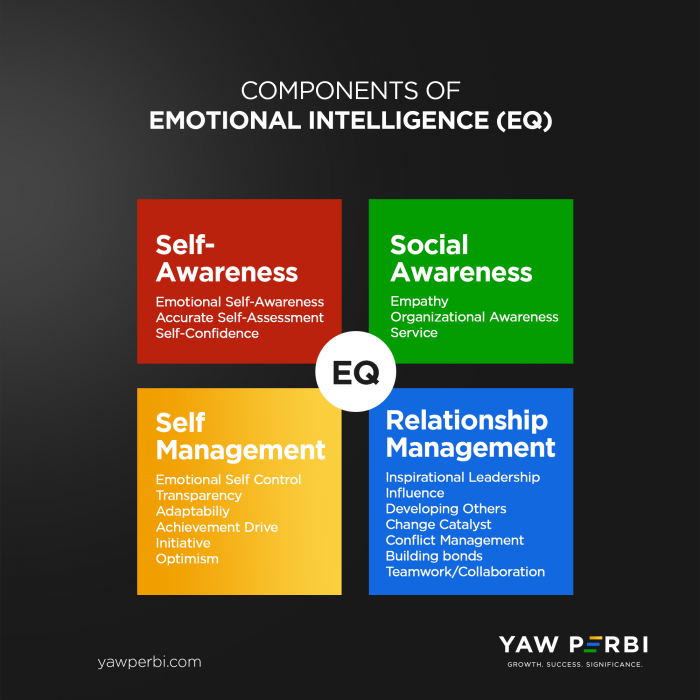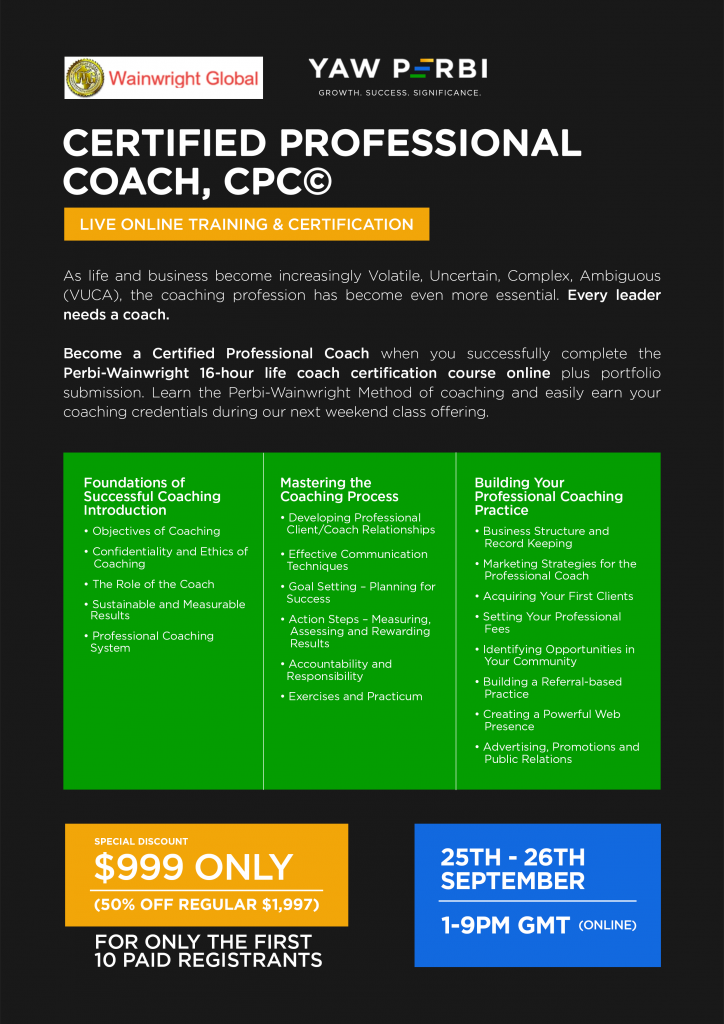
Introducing PELÉ (Perbi Executive Leadership Education).
Imagine a flourishing global ecosystem of authentic leaders characterized by healthy growth, holistic success and lasting significance. That’s the big dream and eternal hope fuelling our daily tasks at the Executive Education firm that bears my name, YAW PERBI. A couple of years ago, after eight years as President & CEO of a Canadian non-profit in the international education space and having garnered several years of executive leadership experience in the Ghanaian military and medical fraternity, global media, the United Nations in Cote d’Ivoire etc. I decided it was time to serve all of that to leaders of leaders: the C-suite. So I came out of sabbatical and stepped down as President of ISMCanada to do this.
Since according to my mentor of a quarter of a century, John C. Maxwell, by whom I’m officially a certified coach, speaker and trainer, that “one is too small a number to achieve greatness,” I have been steadily growing a global team of competent, caring, confident and character-based co-leaders on/from every continent in the world beyond myself to make our faith, sight. That journey has culminated in the birth of PELÉ.
A Play on Words
In keeping our focus on growing and coaching executive leadership to succeed, ever broadening the authentic relationships and resources we bring to bear on our task, we decided to move away from YAW PERBI specifically and to build Perbi Executive Leadership Education, PELÉ for short. PELÉ is not exactly just a happy coincidence, for as a once-upon-a-time football fanatic and soccer player for my elementary school, I recently engaged in my fair share of arguments about who the greatest soccer player of all time is between the shouts in favour of Lionel Messi after lifting the Qatar World Cup trophy on December 18, 2022 and the incessant calls to hallow the legendary Edson Arantes do Nascimento, better known by his nickname Pelé, who died eleven days later on December 29. As a double childhood hero—both of my dad and myself—I had been pondering a way to honour a Black man who gave everyone so much delight and so many people of his skin hue so much pride.
As I’ve stated before, “I am eager to particularly provide C-level executives of African descent with the paradigms, processes and tools necessary to maximize their potential, to be world class, take the world stage and make their dent in the universe.”
A Word In Play
Then came April 2023 when the Pelé Foundation and Sportv launched the “Pelé in the dictionary” campaign to pay tribute and recognise his legacy in other fields beyond sport. Of course his name has long been a synonymous with success and excellence, both of which are values of our Executive Education company, but now the great Brazilian forward and only human to have lifted three World Cup trophies officially had his name in the Portuguese dictionary. The adjective “Pelé” has been added to the Portuguese edition of the Michaelis dictionary to describe “someone out of the ordinary.”
Pelé, the nickname of the late football legend, has officially become tantamount to “extraordinary, exceptional, incomparable, unique.” Pelé is an adjective for something or someone that is out of the ordinary, one who by virtue of their quality, value or superiority cannot be equalled to anything or anyone, just like Pelé. For example, he is the Pelé of basketball, she is the Pelé of paediatrics.
What’s in a Name?
According to Emily Olson of NPR, “It was in the small, impoverished town of Bauru where he first got his nickname playing in youth leagues.” Apparently, even Pelé himself wasn’t sure where it came from, he wrote in a 2006 piece for The Guardian, but it may have been a play on Bilé, the nickname of a goalkeeper for the team Pelé’s father played on. “I can remember the name really bugged me at first. I was really proud that I was named after Thomas Edison and wanted to be called Edson,” he said. “I thought Pelé sounded horrible. It was a rubbish name. Edson sounded so much more serious and important.”
PELÉ by YAW PERBI is an Executive Education firm that offers authentic and customized relationships and resources to C-Level executives to grow personally, succeed professionally and become significant societally. To this end, the company provides Pelé services in leadership development, management training, executive coaching and publishing. Our Pelé coaching, authoring, speaking, and training are centred on LIFE—Leadership, Integrity, Family, Entrepreneurship.
Conclusion
We are PELÉ–extraordinary, exceptional, incomparable, unique–but more importantly, we form PELÉs, who are authentic, out of the ordinary executive leaders in every sector of life and all society’s centres of influence. As a forward-looking, authentic leader, if you want to dextrously dribble through LIFE and exceptionally hit goals like the legendary Pelé, you know where to look for the kind of coaching and training it will take: Perbi Executive Leadership Education (PELÉ). Like begets like.

Confluence for Influence: Kanéval by Perbi Cubs Leverages UNESCO’s Accra World Book Capital 2023.
Exciting news! Perbi Cubs Library Services is teaming up with the United Nations Educational, Scientific and Cultural Organization (UNESCO) and the Ghana Book Development Council, among others, to celebrate Accra World Book Capital (AWBC ’23) as official partners. Accra, the capital city of Ghana, in West Africa, is the 23rd city in the world, and only the fourth in Africa, to have the honour of this title which UNESCO initiated in 2001 to promote literacy globally. This is akin to a literacy World Cup title, only it is bestowed annually.
The World Book Capital is an initiative of UNESCO which recognizes cities for promoting books and fostering reading for a year, starting on April 23, World Book and Copyright Day. UNESCO adopted the 31 C/Resolution 29, in 2001, establishing the World Book Capital (WBC) programme. Cities designated as UNESCO World Book Capital pledge to carry out activities with the aim of encouraging a culture of reading and diffusing the values of literacy, lifelong learning, copyright, and freedom of expression in all ages and population groups, both within and beyond national borders. The first city to be awarded was Spain in 2001 and Accra’s turn is sandwiched between Guadalajara, Mexico (2022) and Strasbourg, France (2024).
The UNESCO World Book Capital Advisory Committee, which evaluates bids to win the title, comprises representatives of the International Publishers Association (IPA), the International Federation of Library Associations (IFLA), the International Authors Forum (IAF) and UNESCO. Past capitals include Madrid (2001), Alexandria (2002), New Delhi (2003), Anvers (2004), Montreal (2005), Turin (2006), Bogota (2007), Amsterdam (2008), Beirut (2009), Ljubljana (2010), Buenos Aires (2011), Erevan (2012), Bangkok (2013), Port Harcourt (2014), Incheon (2015), Wroclaw (2016), Conakry (2017), Athens (2018), Sharjah, (2019), Kuala Lumpur (2020) and Tbilisi (2021).
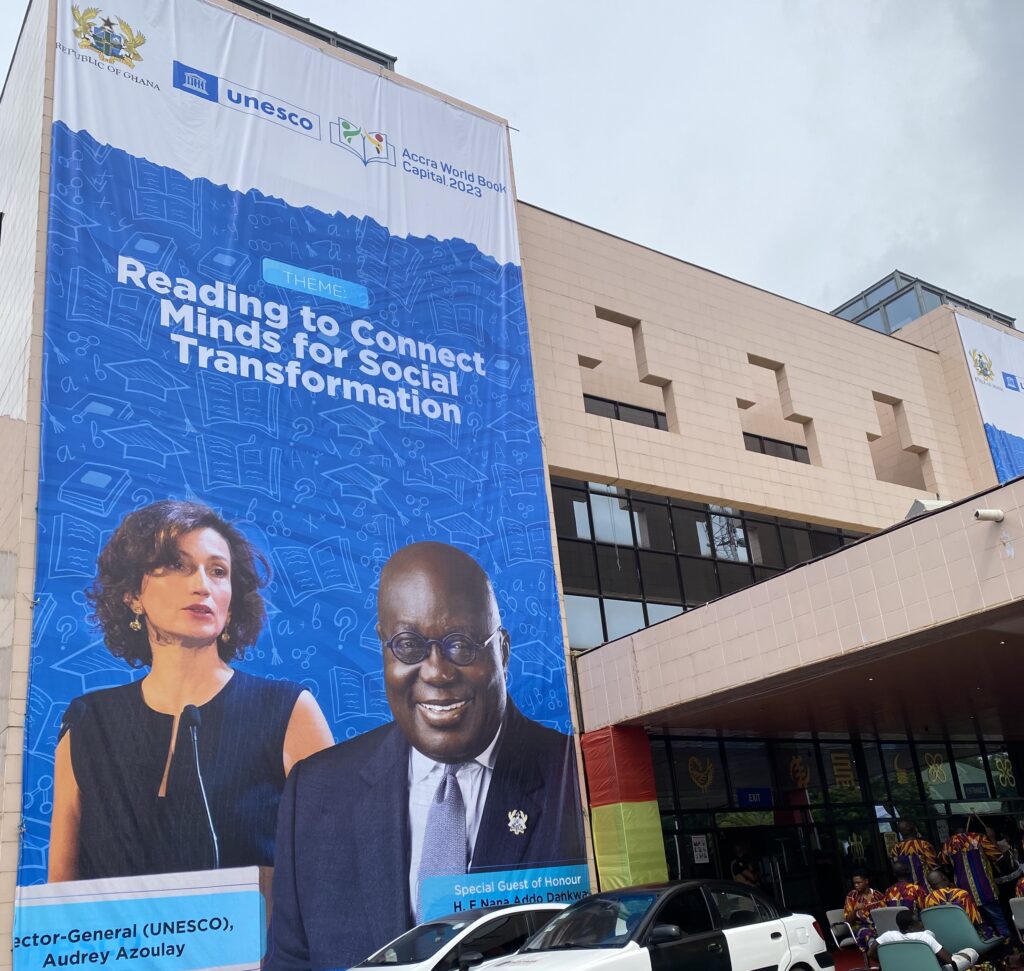
The grand opening ceremony of Accra World Book Capital at the Accra International Centre by the President of the Republic of Ghana
THE GHANA JOURNEY
Accra’s first attempt to win the 2019 World Book Capital title, after the idea was mooted in 2016 and working towards that, failed. Accra relaunched the bid in April 2021 and won it. The executive board of UNESCO, at its 215th session in Paris, France, on September 22, 2021, named Accra the World Book Capital 2023, following evaluation by the World Book Capital Advisory Committee. This was no mean achievement for the ten-member bidding team representing the Accra Metropolitan Assembly, Ghana Commission for UNESCO, Ghana Library Association, Ghana Publishers Association, Complementary Education Agency (formerly Non-Formal Education Division), Ghana Association of Writers, and the Ministry of Foreign Affairs and Regional Integration and chaired by Mrs Ernesticia Lartey Asuinura, the Executive Director of the Ghana Book Development Council (GBDC). Several internal staff of GBDC were behind this successful bid and must be applauded.
According to UNESCO, “the city of Accra was selected for its strong focus on young people and their potential to contribute to the culture and wealth of Ghana. Accra’s proposed programme seeks to use the power of books to engage these young people, as an effective way of skilling up the next generation.” Earlier this year, on April 11, the Minister of Education of Ghana, Dr. Yaw Adutwum, held a press launch of AWBC’23 at which Perbi Cubs was represented by the Founder and CEO, Mrs. Anyele Perbi. He explained that Accra was selected ahead of other cities because the Education Ministry’s programmatic focus was on young people and their ability to contribute to the culture and wealth of Ghana through the power of reading. “Research shows that reading improves the learning outcomes of students in schools,’ said the Minister. “That’s why in certain schools around the world, they’ve implemented and employed the ‘Drop Everything And Read’ – ‘DEAR’. So if it’s 15 minutes, 20 minutes a day, children are made to stop everything and read,” he illustrated.
Dr. Yaw Perbi, Global CEO of The HuD Group and Co-Founder of Perbi Cubs, and Mrs. Anyele Perbi , Founder and CEO of Perbi Cubs, were invited and did attend the grand opening of AWBC ’23 by the President of the Republic of Ghana, Nana Addo Dankwa Akufo-Addo, and the Director-General of UNESCO, Madam Audrey Azoulay Ayoub, at the Accra International Conference Centre. The theme for the occasion was ‘Reading to connect minds for Social Transformation’. It was encouraging interacting with school children as well as top academics at the Perbi Cubs booth, including members of the Ghana Academy of Arts and Sciences. Visiting the exhibition booths of other players in the literacy space was also invigorating but nothing beat the joy of seeing the attending school children flock to the Perbi Cubs stand to sample for a few minutes the thousands of books on their online platform.

Several groups of school children practicalized the whole point of AWBC by doing actual reading at the launch
Under the theme ‘Reading to connect minds for social transformation’ the programmes planned for the title year will focus on particularly the youth and vulnerable groups in Accra (and Ghana at large) such as children, underemployed women, head-porters (kayayei) and persons living with disability, to equip them with literacy and employable skills, while promoting the rich Ghanaian cultural heritage and the book industry in Ghana.
THE PERBI JOURNEY
Both Yaw and Anyele Perbi (née Ampa-Sowa) come from homes full of books. In fact, they got to know each other as children of professors at the University of Ghana campus. Anyele’s dad was an Economics lecturer and Yaw’s mum, a history lecturer. In their growing up years Yaw’s own dad, being a long-time member of the board of Challenge Bookshop, would receive loads of books every year, feeding their home library fat.
Tracing the history of books even further, Yaw’s maternal grandfather was not only an author and professor of African Studies and Ethnomusicology at the same university, but also together with writer and educator Dr. Efua Sutherland organized the first international book fair in Ghana in the early 1970s and proceeded to come together to found Afram Publications a couple of years later, incorporating it in February 1973. Emeritus Professor J.H. Kwabena Nketia was his name.
The Perbi household buzzed with books and moments like when the floating bookshops, the MV Doulos or Logos ships, would berth at the Tema Harbour were fun galore. Meanwhile, Yaw did not like reading as much as Anyele in their early years on the Legon campus. Anyele LOVED reading to the point that the rate of buying books for her and her two brothers was threatening to bankrupt her parents. When she was missing from the house you could be sure she was immersed in a book somewhere!
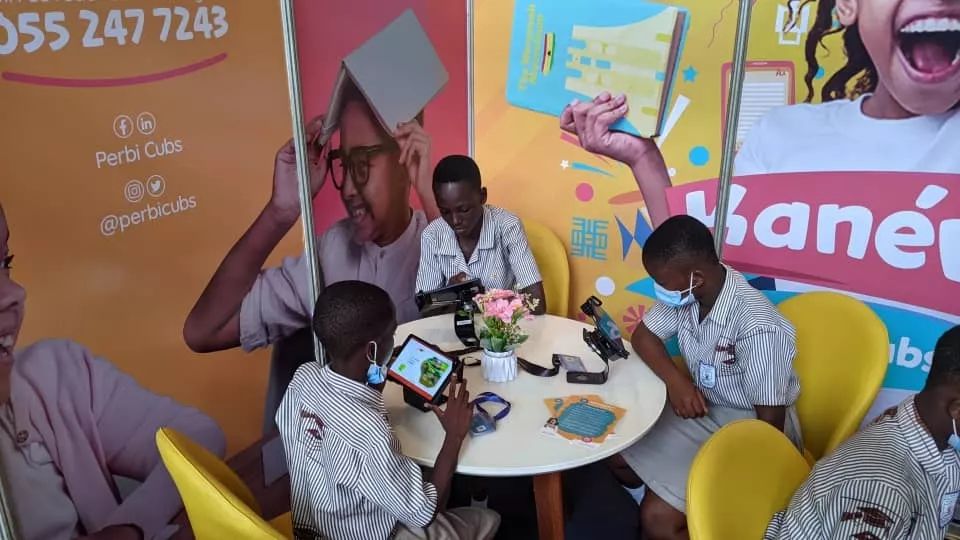
At the intersection of age old reading and new technologies stands Perbi Cubs’ online digital reading platform and offerings
Two jerking statements changed Yaw’s attitude towards books. The first was, “If you want to hide something from a Black people, put it in the book.” You may read the full story here. Fascinatingly, by the age of twenty-three, Yaw would write and publish his first book, What Every Fresher Should Know about University, and as an internationally-recognized author of some twenty books and several book chapters, journal articles etc. now, as they say, the rest is history. Today, one of his punchy books called Read! is subtitled: “You are ‘illiterate’ if you can read but don’t.” Dr. Perbi’s 2015 Thinking Outside the Window was even an Amazon bestseller in its category. His latest book, co-authored with a Kenyan and published in March 2023, is entitled Africa to the Rest. In it, Yaw stresses the need for Africans not only to read but also to write. “Until the lion learns to write,” he reminds us, quoting an old African wise saying, “every tale of the hunt will glorify the hunter.”
When Yaw founded The HuD Group in 2003, one of its first divisions was a library called The Mine (it still runs at the Staff Village of the University of Ghana). So for at least two decades now, Dr. Perbi has been a fierce reading campaigner. And now in tandem with the erudite Anyele, he likes to say “my wife and I have stepped up by stepping down.” What he means by that is, they’ve enhanced their reading campaign (stepped up) but decided to go further down to the age where humans are most pliable: childhood (stepping down). And they began with their our own seven children in the French city of Montreal, Canada which happens to have been the UNESCO World Book Capital in 2005, four years before they would dwell there as a family for the next dozen years. Their own children’s love for reading, the generous 40 books per person supply of the Pierrefonds municipal library across the street from their West Island home and an imminent eight-month visit to Ghana that threatened to stifle this Perbi reading culture combined to birth the Perbi Cubs Library Services. You may find the story and philosophy behind Perbi Cubs here.
AND NOW, KANÉVAL
According to Perbi Cubs CEO, “We are excited to inform you that Perbi Cubs, in partnership with UNESCO Accra World Book Capital 2023, will be organizing a fantastic year-long program. Watch out for Kanéval as it moves round throughout the year, to your school or community. Stay tuned on the various Perbi Cubs social media handles like Facebook, Twitter, LinkedIn and Instagram for more updates.” Kanéval by Perbi Cubs, a season of fun, inspiration, and BOOKS, is launching in Accra on May 11, 2023.
As long as reading remains a chore, we’ll have a problem promoting it. But who doesn’t love a good festival, a carnival? What if we could think outside the box and bring together the idea of a traveling amusement show with merrymaking sideshows, rides, etc. with reading? What if face-painting or getting on a swing was a reward for reading a book? These are some of the disruptive ideas that incubated and eventually hatched Kanéval. The idea of Perbi Cubs in general and KANÉVAL in particular, is to bring FUN to reading while strongly brandishing the connection between reading and success in life.
In the spirit of innovation and creativity, Perbi Cubs values, the coined word Kanéval was inspired by the word for read in Ga, the language of the Accra people, Kané. So combining ‘Kané’ with the English word ‘carnival,’ here we are! There will be lots of fun, reading and other educational activities. Perbi Cubs is grateful to several Ghanaian influencers like Nana Aba Anamoah (media personality and General Manager of GHOne TV and Starr FM), Bernard Avle (Citi Breakfast Show host and General Manager of Citi FM), Kafui Dei (author, speaker and GTV Breakfast host), Portia Gabor (TV3 hostess and Ghana Journalist Association’s reigning Journalist of the Year), Gwen Addo (entrepreneur, author and CEO, The Hair Senta), Giovani Caleb (media personality, radio and TV), Gifty Anti (author, media personality, celebrated journalist) and others who are synergizing with them to take the culture of reading to the next level to transform the fortunes of Ghana and Africa.
Perbi Cubs’ Kanéval is scheduled to take off on 11th May, 2023 at Alpha Beta Education Centres and then to all their partner schools and other communities, particularly deprived ones badly needing a literacy intervention. Kanéval is not just for our Cubs but all our stakeholders including you. There are many activities you can join in with exciting prizes. Kanéval awaits you for a Kanévalistic experience. Kanéval – Reading is fun!!! The amazing part is that in collaboration with various partners, Perbi Cubs is offering huge discounts on their subscriptions so that every Cub in their partner schools can read this year!
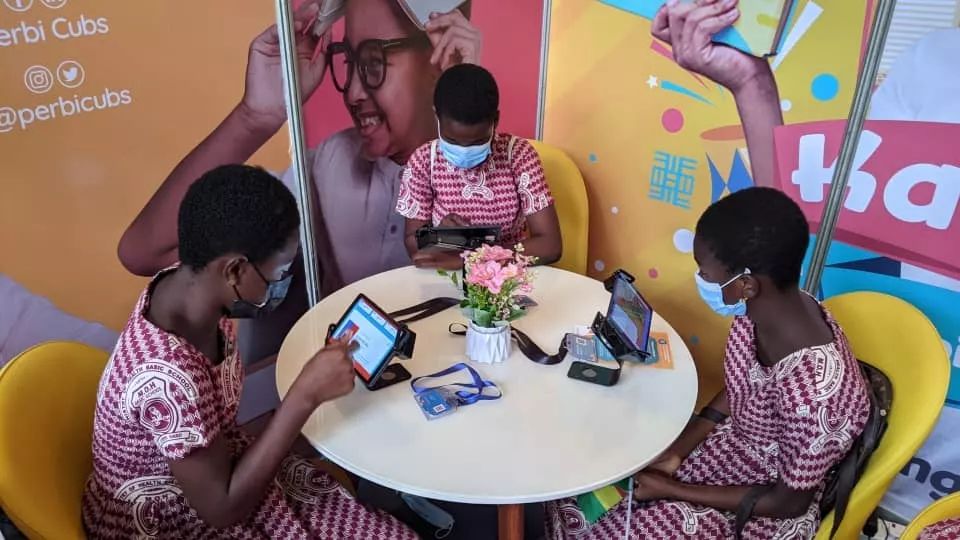
Perbi Cubs has served about 10,000 children so far and is set to scale that in this AWBC year to 100,000
WE HAVE A PROBLEM
Kanéval is fun about something serious. And Ghana in particular has a problem that isn’t funny. As a society we do not value reading enough. If research has proven that the love for reading is a stronger indicator of a child’s success in school and prosperity in life than even their parents’ socioeconomic status or level of education, then we should be worried that only 6% of Ghanaian children at classes two and three can read and understand what they read (UNESCO 2021). Meanwhile the World Book Capital Network (WBCN) acknowledges and reminds us of the power of books and reading as cornerstones to more inclusive, peaceful and sustainable societies. Thus as they rightly put it at Perbi Cubs, “Success is just a book away,” be it personal or national.
Let this be the year we all got dead serious about raising the tide (the general level of literacy) that lifts all the other boats, all sectors and subjects, including STEM. O that the confluence for influence between Kanéval by Perbi Cubs, influencers like those cited above and all other players in the UNESCO’s Accra World Book Capital 2023 space will do the trick. Let’s get on with this serious business, having fun along the way. Kanéval it is!
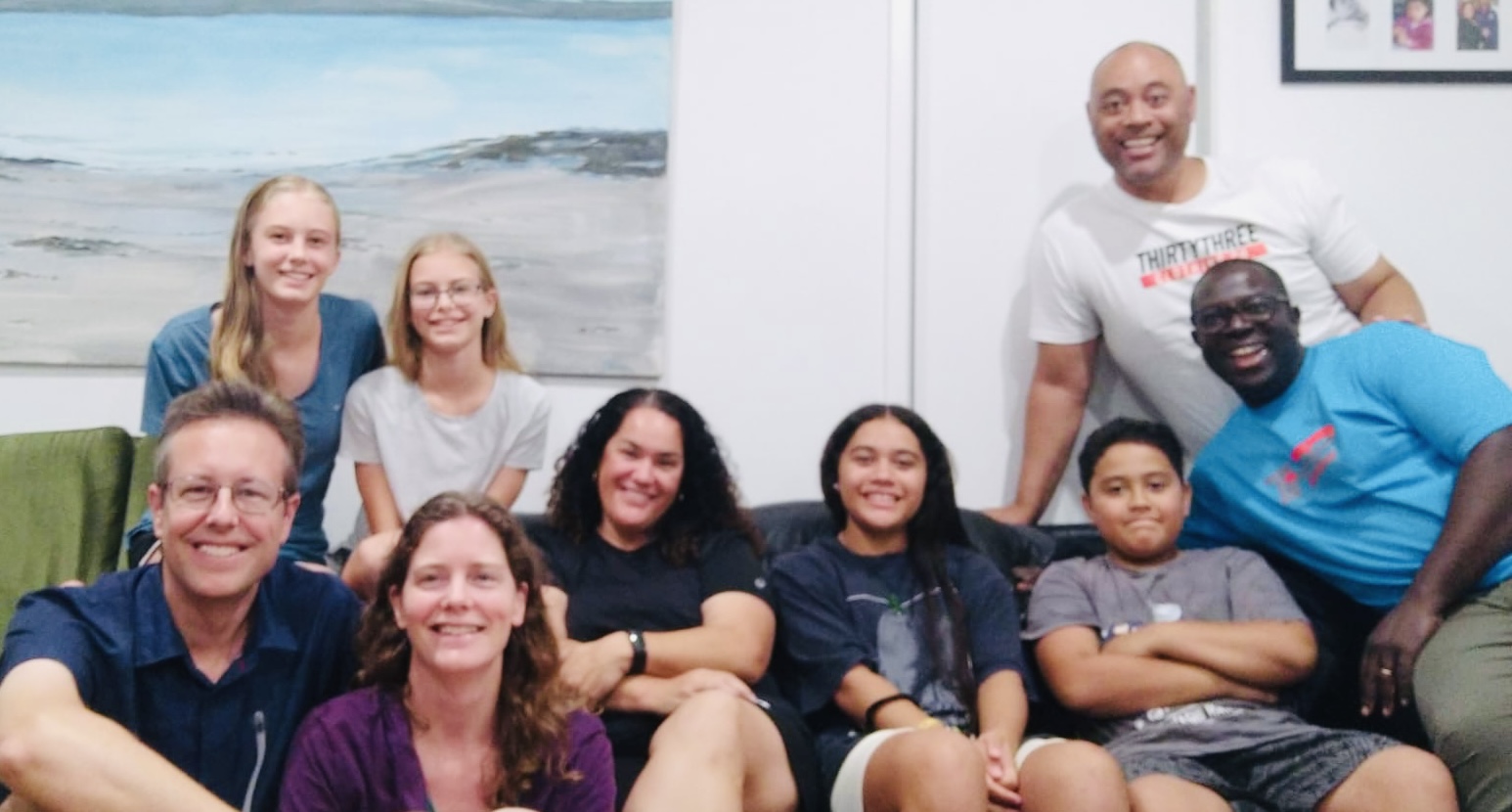
You may have my bag but not my friends.
An exhortation on not allowing circumstances and people who know no better rob you of the wealth of intercultural relationships in our diverse, complex and globalized world.
MYSTERY OF THE MISSING BAG–WHY ME?
I was the last one to walk out of the airport arrival hall at Gold Coast in Australia. I had all the customs and immigration officers to myself, nearly a dozen, yet I gave them absolutely nothing to do. I not only had nothing to declare, I had no bag! Apparently, my only checked-in bag on the three-and-a-half hour NZ 179 flight from Auckland, New Zealand to Gold Coast, Australia had never been loaded onto the plane in the first place. I had waited and waited in vain for it until when nearly everyone on this very full flight had left the baggage hall and Carousel 6 was literally bare, I approached the Baggage Counter to complain about my missing travel companion.
The chap at the Air New Zealand counter was very nice but his assumption that I was going to be in Gold Coast ‘forever’ fascinated me (I’m surprised I wasn’t annoyed).
“Oh sorry sir but your bag will be delivered to you at home tomorrow,” said he.
“Tomorrow? Who told you I’ll still be here tomorrow,” I quizzically retorted.
It was obvious he felt he was doing me a great favour by offering me special at-your-door delivery but I was not amused. Not only did I need the items in my bag today; I was not going to be in Gold Coast in the morrow. This was a 24-hour meet and greet and off to Adelaide, another two-and-a-half hour flight to the western half of the Australian subcontinent.
By now my mind had begun to formulate various plausible permutations why I alone (for I saw no one else approaching the Baggage Counter to lodge a complaint) had my bag delayed. Why me? What was so unique about me that my bag would be singled out for NOT delivery? The only other thing I knew made me different was that I was the only Black African on the flight. Did this have to do with anything?
Interestingly, as I passed through the Auckland airport earlier I had taken a photo in front of the All Blacks memorabilia shop and tweeted “I wonder why I feel so #welcome. #AllBlacks vs #WhitesOnly. How the times have changed–this one, for the better. #NewZealand rocking it!” Did someone spot that and nab me? Was I too quick to praise New Zealand for progressive race relations? Did this bag saga really have anything to do with my Black skin at all? It is easy to read racism into nearly everything once you’ve been a victim of that dehumanizing attitude and act, I must admit. I resist that. I resent that, even.
MYSTERY OF INTERCULTURAL RELATIONSHIPS–SO WORTH IT
All those thoughts and feelings totally dissipated once I set eyes on the last two people left in the welcome area: Julia and Billy-Jo, two of my special friends from the 1997 cohort of the World Vision Youth Ambassadors! Sooo worth the hustle! I had had the privilege of being a World Vision Youth Ambassador for Ghana in 1996 and had the additional honour of returning in Julia and Billy-Jo’s year as a staff intern, together with Claudia from Colombia.
Julia had represented Canada back then and for her, this was our third in-person meeting since 1997 (Prague 2015, Ottawa 2021 and now Gold Coast 2023). But Billy, I had not seen in-person at all since our teenage years! Billy-Jo (yes, she was the first lady I met called Billy–she was way ahead of the gender conversations today!) was the Youth Ambassador from New Zealand. Again, the first Pacific Aboriginal I had ever met, a beautiful Maori, inside and out. Billy’s since become a senior nurse, married to Matt (great guy!) with whom she has three children and migrated to Australia. Interestingly, both Julia and Billy-Jo’s husbands are called Matt. Julia’s Matt is American while Billy’s Western Samoan.
What an incredible day of food, fellowship and fun we had all day, at home and at the Burleigh Beach. The unadulterated love, the open-hearted learning, the deep laughter… What a precious gift we received from Dr. Jerry and Mama Ruth Chang of World Vision Taiwan a quarter-of-a-century ago, a gift that keeps giving, even today.
Now I’m glad our children are getting to know each other as well. The gift ripples on. Just before my family permanently headed to Ghana after a dozen years of being resident in Canada, Julia’s two girls and my brood had a whole day together at their home, right outside of Ottawa, Ontario. In fact, even in the midst of the jamboree we made a WhatsApp video call to Ghana for my older girls to say “hi” to their Canadian sisters. And now that I’ve met Bella and Asher, Billy’s last two (the oldest is away playing rugby and doing school in New Zealand), we have already started conversations about getting them to visit Ghana!
MYSTERY OF INTERDEPENDENCE
Friends, that’s how it ought to be. People are people, made in the image and likeness of their divine Creator, and made to link up with that source, live, love, learn, and lead, leaving a good legacy. Becoming a World Youth Vision Youth Ambassador was a life changing experience–50 young people from 50 different countries. That opened my mind a lot and opened the world to me. As I’ve said before, “My heart expanded and has never been able to shrink again.”
Back to the mystery of the missing bag. For sure I felt very special, having been singled out for some (or no) reason. For good or ill, that’s a conversation for another day. Suffice it to say, this has been a fascinating week, beginning on Monday March 6 in North America (Toronto, Canada and Houston, Texas, USA) with a celebration of the land of my birth’s Independence Day and her renaming from ‘Gold Coast’ to Ghana. I was now ending the week in another Gold Coast, of Australia. The same chaps christened and colonized both; on either side of the equator. What we really need in this world, from individuals to nations, is interdependence; not dependence or independence per se. We were made for this! And we all ought to live the way we were purposed to in order to flourish personally, as families and communities, in the corporate world and among the commity of nations.
In the mean time, you can have my bag but you won’t rob me of the richness of interdependent, intercultural relationships. Never!

O National Cathedral of Ghana: My Hopes and Fears Have Met in Thee.
In the interest of full disclosure, first of all I am a Bible-believing, Jesus-following, Spirit-filled African Christian. Secondly, at the time of writing, I have no membership of any political party—just a citizen who passionately loves his motherland and has served both major political parties when called upon. Finally, I comment on the National Cathedral of Ghana matter primarily as a missiologist and leadership scholar. These thoughts were largely shared on the Cit FM/TV current affairs programme The Big Issue on 21st January, 2022. The crux of my submission, that the project be halted and audited, was also carried on Citi News Room here.
THE THING THAT I FEARED HAS HAPPENED
My first article on the proposed National Cathedral of Ghana in August 2018 was entitled in a manner that exposed the battle that raged within me upon hearing the president of the Republic of Ghana announce his vision to put up a national cathedral. It was an inquiring heading: “National Cathedral: Vulgar or Virtuous Venture?
In it, I confessed “my unwholly holy initial thoughts, honest-to-God,” sharing my initial skepticism about the project, mainly concerned about it being a mere political scheme to siphon monies, only with a nice religious façade. Secondly, I questioned the prudence of it amidst the poverty and sheer lack of basic infrastructure and public services in a developing country (NB. This was before Covid would hit and make everything that was bad, worse). Thirdly, I was wary of the perilous path of Europe where centuries old grand cathedrals now only stand as emblems of a once-upon-a-time vibrant Christendom while the faith itself is dying today, precipitously. Even then, one need not cross the oceans to note the dangers of religious opulence over pragmatic faith. Just look next door, right across the Ghana border to the near-white elephant of the Notre Dame de La Paix in Yamoussoukro, whose proposed community-impacting hospital as an attachment to assuage the papacy’s guilty conscience is till yet to see the light of day, thirty-two years later.
As I studied the cathedral proposal further, especially as an African missiologist, its merits rose above my cynicism and mounting hopes tamed my fears to the extent that I was willing to give the project a chance, even my support. In fact, not only was I present at the foundation stone-laying, I wrote a cogent trilogy about how even the president might not be fully aware of the extent to which Almighty God may be using him to accomplish His glorious purposes in and through Africa, especially considering this unique moment in history where the once derided “dark continent” now has more Christians than any other continent and will double that lead by 2050, with more Christ followers than the next two continents (Latin America and Europe) combined! In fact, a summary of the trilogy even made its way into the Cathedral’s published magazine.
Over the last couple of years since then, I have found my faith in the project on a slippery slope back to where it first began, with supposed scandal after seeming scandal and allegation upon allegation that rival the corporate sins of the Arthur Andersons and Enrons at the turn of this century (if not making them pale in comparison), that do not befit an edifice for the King of kings. The opacity in the project’s financial dealings, including estimated project costs, eye brow-raising fund transfers and amorphous government seed money, make nonsense of the God who is light, in whom there is no darkness at all. The purpose of this rejoinder is not to dive into each of the smudges and spots on the project but to put on record that while I have enumerated prior at least a dozen reasons this could be a virtuous project, like ‘the greatest man in the East’, for me too, “the thing I greatly feared has come upon me” (see Job 3:25-26). I seek to document for posterity my revised position on the National Cathedral of Ghana for not only are my values being violated, the very faith in whose name this edifice is being erected is endangered.
NOODLED & NUANCED
This cathedral matter is a very nuanced one and thus requires the highest levels of leadership competence, care and character to navigate it. What do I mean? Four things. First of all, the president is not a king; he cannot just pronounce edicts, fiats and decrees at an enlightened citizenship. Secondly, we don’t live in a theocracy, but in a fairly vibrant democracy (although admittedly we are a pseudo secular state with our national anthem and pledge referring to ‘God’). Thirdly, private-public partnerships can be a tricky dance. And finally let’s face it, things are hard socioeconomically right now!
As if all of this is not enough, the president in particular hasn’t shown the kind of great leadership in casting vision (constantly, compellingly, creatively) and galvanizing the people from the grassroots. To make matters worse, the government itself has lost the trust of the Ghanaian people with its economic mismanagement, real and imagined, poor emotional intelligence in matters like this and poor consultation culture–from this cathedral issue through the recent e-levy saga and even current Domestic Debt Exchange debacle.
Then the process itself has been fraught with paucity of information and poor communication, poor governance (really governance 101), low accountability and too much opacity. In fact, in my frustration the other day while preaching on an Ephesians chapter five text about leading and living in the light I bellowed, “Stop the Cathedral in the name of the Lord!”
Don’t get me wrong. There are pluses about this project. Many. Between my initial article and the subsequent trilogy you will easily find a dozen cogent reasons why this could be a virtuous venture, including how the cathedral is more than a building (although the Africanization of it, its tourist attractions and income generation nature per se are all something to write about). The fact that the cathedral has a mandate to be a convenor of national conversation and debate warms my heart.
If the government had kept to its initial promise of providing “just the land” and only “seed capital,” I’ll be at peace. It is for the body of Christ to build this cathedral to the glory of the LORD, but considering the nature of Christianity in our Ghanaian public sphere and the prime place of faith for the African this is a nuanced matter. Any good government would have a keen interest in this matter, hence the sense in situating the NCG in the country’s capital city’s ceremonial core to provide “the missing link” (words of the architect) as a final piece of a national puzzle. Apparently, the other national pieces are all already in place: the people’s place (international conference centre, national sports stadium), the people’s representatives’ place (parliament building and State House), the peoples’ heroes’ place honouring the dead (Osu cemetery and adjoining military cemetery).
Granted, it isn’t everyone who is able to appreciate that we are a building a nation here; not just an eclectic collection of utilitarian infrastructure. That’s how come although we still have children learning under trees we still have national stadia and presidential edifices like Jubilee House and Peduase Lodge. To build or not to build this cathedral is really a nuanced and noodled matter that requires a certain high level leadership that I, honestly, haven’t seen on the horizon.
THIS ISN’T A ZERO SUM GAME
As a missiolgist, I believe that even the president does not fully know or understand the magnitude and implications of his vision. His initial vision may have been personal but vision is often progressive and it is possible He is being used by the Sovereign God in ways the man himself cannot fully comprehend, let alone the masses crying out against this vis-à-vis the impoverished state of the state. In order not to repeat the dozen or so cogent reasons why this project can be worthwhile, I will strongly encourage you to take a look at trilogy 1, the second part and the final installation, all from March 2020.
GOING FORWARD: SEVEN STEPS
1. STOP! STOP! STOP!
This may very much sound and look like the ‘STOP WORK’ in red paint on uncompleted building projects by the Accra Metropolitan Assembly (AMA) yet, I see red flags all over this project that require concomitant red paint markings all over it too. This is not from the AMA this time. Just “we the [Ghanaian] people” saying, “STOP WORK!”
2. AUDIT
Secondly, let us get any of the so-called ‘Big Four’ global auditing firms in the country to do a thorough audit of the NCG secretariat, board of trustees and other associated names like JNS Talent etc.
Sometimes those AMA signs not only read, “Stop Work” but continue with “Produce Permit.” I would say for this cathedral project, in conjunction with step one, let us also “Stop Work and Produce Audit.” The result of the audit will help clarify our next steps—if even this project should continue at all, and if it should, how.
3. CALL FOR CONVERSATIONS AND DEBATE
Let us on purpose have a broader conversation and debate of the best minds and hearts for the way forward. “In the multitude of counselors there is safety,” said the wisest man that ever lived. And this is a sagacious king who could’ve easily ignored the counsel of others. Interestingly, he put up the most magnificent temple in the whole world in his day, for YHWH. Even Africans like the Queen of Sheba travelled long distances to come and see. If we want to see the reverse today, others come from elsewhere to behold the magnificence of the NCG, then we had better consider wise, broad-based consultation.
In my humble opinion, this government has been unbelievably militaristic; so non-consultative! Yet the thing is that even if people do not agree, they will support the project, or at least not be as antagonistic, because they have been seen (recognized) and heard. Conversations and debate will cause the significant groundswell needed for such a massive national venture with international ramifications.
4. GIVE OURSELVES TIME
If from the pause, audit, conversations and debates it becomes apparent that this project should continue, then we must give ourselves time. This cathedral doesn’t have to be built by 2024 and ready for a January 2025 swearing-in. That is precisely part of the problem with this project: the fact that the president is in a hurry to put this up while he is in office.
While a sense of urgency is good, undue pressure because of time crunches leads to many mistakes and often unethical behaviour, no matter how hitherto virtuous one’s cause. For example, this strange exchange of over two million Ghana Cedis between a whole national project and a private individual’s company obviously happened because apparently the project couldn’t wait for government funds to clear (this issue is under investigation, and rightly so). Besides, things are über hot in the economy right now, Ghana’s caught up in a socioeconomic inferno. It is wisdom to let both the times and tempers cool off.
If this is truly a national cathedral and not H.E. Nana Akufo-Addo’s pet project, then it should stand the test of time by traversing other administrations—perhaps two or even three terms down the line, including opposition parties—and be owned by all and sundry. If is by the good people of Ghana it for the glory of Almighty God, then we are not in a hurry. When we are not in a hurry we can think properly, do things appropriately, follow due process… Time is money and time will save us a lot of money—and a multitude mistakes.
5. TRANSPARENCY! TRANSPARENCY! TRANSPARENCY!
“This is the message we have heard from him and declare to you: God is light; in him there is no darkness at all” (1 John 1:5, NIV). Even some corporations have more transparency and better governance than the current supposedly religious project. Anathema! If this is truly an edifice to the Most High God then there cannot be even a hint of inappropriateness and misappropriation. As it stands now, not only has there been too much darkness and opacity surrounding a building that is to be a Lighthouse for the nations; too many allegations and suspected scandals that even some ordinary government projects cannot rival.
My mind goes to another cathedral project’ in ancient times where it was said, “They did not require an accounting from those to whom they gave the money to pay the workers, because they acted with complete honesty” (2 Kings 12:15, emphasis mine). I’m afraid we cannot say this of the NCG people or process so far.
6. LET GOD’S PEOPLE BUILD GOD’S BUILDING
The government of Ghana has done more than enough, giving the land. And way more seed than was my impression at the start of the project. If this sanctuary is really for the LORD then let’s let the Body of Christ in the country build it. And yes, we can! Christians have literally put up thousands of edifices strewn across the length and breadth of the country, ‘from Gambaga to Accra, from Wiawso to Keta.’ Let the Church do this for the glory of Almighty God. We thank the generous government of Ghana for the head start but no more government/tax-payers’ funds, please.
Let God’s people be able to say, like in Nehemiah’s day, “The God of heaven, he will prosper us; therefore we his servants will arise and build.” Whenever God gives a vision, He also makes the provision. But if this venture isn’t of God, then we are on our own; it will be hard.
For a number of great cathedrals that have been built, people have felt so privileged to be a part of the history-making that they have voluntarily given, not just of their substance but of their very selves. Carpenters, masons and other artisans and professionals have offered their services for free, and not the case of exorbitant amounts being paid to the current architect and others. In my opinion, the celebrated architect should feel so privileged to do this for God and country that he does this gratis! You tell me how much we paid the designers of our national flag and presidential stool; or composers of our national anthem and pledge.
7. WORK AS PASSIONATELY ABOUT OUR ‘SOFTWARE’ AS WE ARE ABOUT THIS ‘HARDWARE’
By software I mean our values, our paradigms and attitudes etc. The nation is so full of poor work ethic, corruption, filth (environmental and figurative), incompetence, dishonesty, lack of integrity etc. yet we want to build a magnificent cathedral for God. There is so much grievous poverty in the lives of the majority yet we want to put up this ceremonial and celebratory infrastructure at a cost of $400 million in the heart of Accra. The scriptures are replete with what God requires of us, first and foremost, and it is not so much physical buildings as that our spiritual, social, mental and emotional states reflect His glory; also, that our physical bodies will be hallowed as His temple. So as we are excited about the hardware (physical building of a cathedral), o how I pray that we are equally excited to work on our values, attitudes, morality, ethics, true selves, true faith and integrity. We also ought to disciple our sectors and systems of Ghanaian society so that these reflect a people that believe in a righteous and excellent God, the Most High.
CONCLUSION
Despite the bold vision of the NCG, we haven’t as a people or leadership displayed the kind of competence (eg. vision casting, convincing communication, broad consultation), character (eg. transparency, accountability) and compassion (eg. sensitivity to the present economic plight of the Ghanaian people) that a project of this magnitude demands.
I believe if we took the above seven steps, that should put us in good stead and hopefully lessen the painful memories and bitter aftertaste that this project would otherwise bring us. I do not believe the NCG is an entirely vile venture; but neither will it be entirely virtuous without great leadership in its purpose and process. Repentance and restitution must take place where the audit finds wrong and the best way forward forged as a body politic. The virtues in the idea of a national cathedral can be redeemed and the dead and near-buried hope and glory resurrected. This project can still bring God glory and bestow blessing on not just Ghana but the nations of the world if we would be quick to vanquish the evils that crouch at the foundation and front steps of this edifice. But for now, both my hopes and fears of these past six or so years have come to a head in this embattled National Cathedral of Ghana project.
Post Script
It was heart-warming to find that a couple of the National Cathedral’s Board of Trustees members, namely Archbishop Nicholas Duncan-Williams and Rev. Eastwood Anaba, reiterated my January 21 call above to ‘stop work and produce audit’ barely two days later, January 23, 2023. It was soon followed by a formal press release by the chair of the Board, Rev. Prof. Opoku Onyinah the next day, following a January 23, 2023 Board of Trustees meeting at which they agreed to engage Deloitte, one of the Big Four accounting firms in the world, to carry out an audit.
The hope expressed in the final paragraph of the said press release is mine too: “It is the hope and trust of the Board of the National Cathedral of Ghana that once these nagging issues are satisfactorily dealt with, the public interest and confidence in the project would be restored and rekindled to enable the citizenry to contribute generously to complete the Cathedral to the glory of God.”

Meet Patrick Lencioni, the Workplace Guru.
There’s no one I enjoy hearing about teams, meetings and workplace dynamics like Patrick Lencioni. Patrick is an American author of books on business management, particularly in relation to team management. He is best known as the author of The Five Dysfunctions of a Team, a popular business fable that explores work team dynamics and offers solutions to help teams perform better. On a recent trip to southern and eastern Africa, his cautionary tale to CEOs published in a book by the title The Motive, was my jolting companion. It brought me back to my senses as CEO of a few enterprises.
Lencioni is Founder and President of The Table Group, a management consulting firm specializing in executive team development and organizational health. As a consultant and keynote speaker, he has worked with senior executives and executive teams in organizations ranging from Fortune 500s and high tech start-ups to universities and non-profits. He also gives talks on leadership, organizational change, teamwork and corporate culture. He is frequently interviewed for national media including features in the Wall Street Journal and USA Today.
SIX TYPES OF WORKING GENIUS
At the annual John Maxwell Live2Lead conference last week–the Ghana site hosted nearly 600 leaders LIVE! with thousands more to benefit through rebroadcasts–we heard from Patrick Lencioni about his groundbreaking new model that provides a deeper understanding into our workplace and team dynamics.
The six types of working geniuses together form the word WIDGET, symbolized by six gears working perfectly synergistically well together. W is the genius of Wonder, I the genius of Invention, D the genius of Discernment, G the genius of Galvanizing, E the genius of Enablement and T the genius of Tenacity. In the near future we shall provide a fuller blog delving into further details about these six geniuses. In the mean time hear Pat the sage, “If you want to be successful and fulfilled in your work, you must tap into your gifts. That can’t happen if you don’t know what those gifts are.”
THINGS DON’T HAVE TO BE THIS WAY
Pat explained how people don’t understand their personal areas of working genius, which impacts their ability to identify work opportunities that would be most meaningful to them, as well as disallowing organizations, teams, and families to help individuals tap into their true working genius, resulting in a failure to reach one’s true potential. But things don’t have to be this way. This tragedy is avoidable, as Pat shared how you can identify your working genius and understanding which one of the six geniuses both you and your teammates are. Contact us, the Live2Lead team, if you and your team would want to test your genius to become all you really could be. There are no dumb or lazy people on the planet or on your team; only geniuses who are yet to find and fire up what makes them tick!

Meet Tim Elmore, Intergenerational Leader of Leaders.
Dr. Tim Elmore’s passion for leader development began in 1983 when he worked alongside and was mentored by best-selling author, Dr. John C. Maxwell. Since then, he’s emerged as an author, leadership expert, and keynote speaker who’s trained more than 500,000 leaders in hundreds of organizations worldwide. Speaking of intergenerational leadership, he’s also the Founder and CEO of Growing Leaders, a non-profit team that equips students and young professionals around the world to become life-giving leaders. Tim has developed young leaders on every continent and has spoken in 50 countries including India, Russia, China, Brazil and throughout the Middle East.
Dr. Elmore has advised corporations such as Chick-fil-A, Cox Communications, the Home Depot, Cici’s Pizza, Delta Global, Coca-Cola Consolidated, and more. He’s spoken at top-tier universities such as Stanford, Texas, Duke, Ohio State, Georgia Tech, U.C. Berkeley and more. And he’s presented to executives and world-class athletes with the Kansas City Royals, New York Giants, Houston Rockets, and San Francisco Giants. His blog is read by over 100,000 people weekly.
THE INTERGENERATIONAL WORKPLACE OF THE 21ST CENTURY
At Live2Lead on October 7, come hear how Tim brings his decades of research and leadership experience to bear on what might be the biggest, most dramatic, and most disruptive shift the workforce has ever seen: the vast diversity of several generations living—and working—together. Tim Elmore explores the fact that for the first time in history, up to five generations find themselves working alongside each other in a typical company. The result? There can be division. Interactions between people from different generations can resemble a cross-cultural relationship. Both usually possess different values and customs. At times, each generation is literally speaking a different language!
How can we hope to work together when we can’t even understand each other? Tim will provide the tools to:
- Get the most out of the strengths of each age group on your team.
- Foster effective communication instead of isolation among people.
- Build bridges rather than walls so that loneliness becomes connectedness.
- Connect people to learn how both veterans and rookies can mentor each other.
ADD VALUE TO YOU AND YOURS
At YAW PERBI Executive Leadership Education all our offerings are to the end that leaders grow personally, succeed professionally and become significant societally. Join Dr. Tim Elmore and the other stellar faculty Dr. John Maxwell has put together for this year’s Live2Lead conference and tune up your leadership game. Register now through this link. Impress upon your organization to join the movement that will transform society by becoming a Patron of Live2Lead. A Patron company or individual is one that sends at least 10 leaders to Live2Lead. Together we can change our world for the better!
Register HERE, NOW.

Raise the Roof, Lift your Lid!
I just arrived at my room in Cape Town after three flights from Accra to Nairobi, Nairobi to Johannesburg and Jo’burg to Cape Town. A question on my mind as l flew here far above sea level, sometimes as high as 38,000 feet, has been, “How high is your leadership lid?”
THE FIRST OF THE IRREFUTABLE LAWS OF LEADERSHIP
Of course you know what a lid is, the cover of a container. How high your lid is determines the quality of the leadership that you provide for those you lead. I learnt this a long time ago, some 20-25 years ago from John Maxwell’s 21 Irrefutable Laws of Leadership. It was the very first of the principles of leadership he espoused in that bestseller and my life has never been the same since.
As John challenged me then from the written word—and many years later in-person—I must always endeavour to lift my leadership lid because no family, organization, church, community or country would ever grow past their leader. The leader is the lid over those (s)he leads. Sometimes when training leaders I ask, “are you a leader or ‘lidder’? because a leader is literally the lid on the progress and prosperity of their constituency. In a sense, every leader is a lidder; the question is “how high?”
IMAGINE THIS PRESIDENTIAL LID
You probably have heard me tell the story of a certain African president that a group of us, Maxwell certified leaders, were trying to connect in-person to John C. Maxwell for a national transformation process and programme. This president had never heard of John. In all probability, he hadn’t read any other contemporary leadership experts but hopefully he has digested at the very minimum some of the leadership classics like Plato’s, ‘The Republic’. It is a scary thought that this African nation—and by extension every family, organization, corporation, community, church etc. within her—would be constrained by the tightness of this head of state’s lid. I almost added, “through no fault of theirs,” but I guess they voted him into power.
HOW TO LIFT YOURS
While we educate a new generation that should be too enlightened to allow such tight lidders to lead African nations in the next decade, let me ask you, let’s get personal: how high is your lid? We forget, many of us (or we might even not know), that leadership is not just caught, it must be taught. And that’s why I love the opportunity, come October 07, for us all to be part of a life-altering, lid-lifting Live2Lead virtual experience with local faculty and global ones beaming all the way from Atlanta, Georgia.
We are gunning for 2,000 leaders—from emerging (youth) leaders, through leaders in the establishment (i.e. government/public sector leaders) to established leaders in the private sector, including executives from the corporate space. We will be taught in word and deed by powerful speakers and shakers like John C. Maxwell himself, two Patricks (Lencioni of the USA and Awuah of Ghana) and a Patricia (CEO of Vodafone, Ghana).
RAISE THE ROOF!
One of the most powerful discoveries in psychology over the last generation has been that people can learn and grow and change! So wherever your lid is today, if you learn to lead better you provide more room for those you lead. John will be the first to tell you that “your capacity determines your impact.”
Perhaps, some of the conflicts you are experiencing right now in your organization, church or wherever you lead is because your lid is too low and so people keep hitting it. And there is going to be continued tension and banging (conflict) till at some either you leave the stage or your people take their exit. As you have probably heard it said, people join organizations but they leave people (managers/leaders). It’s time to make room, lift your lid, raise the roof!
I have been part of things l left because the lid was too low. It just wasn’t life giving and l know people have also left my leadership when my lid was low because it was just too tight. Learn to lead. Each one of us can learn to lead better. Blow off the lid so that all of a sudden the people under your leadership feel this space and freedom because you lifted your lid and now they can breathe and create and innovate and… live again.
Join us at Live2Lead Ghana 2022, on October 7, and let’s all learn to lead better so that the people following our leadership can live better. If leading is your purpose on earth—that you live2lead—then you might as well as learn2lead, and do it well. As Donewell Insurance puts it, “If it must be done, it must be done well.” If we must lead, then we must lead well. Let’s blow off some lids and see our constituents blessed beyond measure, growing great and strong.
Right outside my hotel room window is the breathtaking view of the majestic, towering Table Mountain at 3,500 feet above sea level with no real ‘peak’ per se. No lid! So in the meantime, while you contemplate your lid, I will enjoy Cape Town on your behalf.
Post Script
Register and join LivetoLead here.
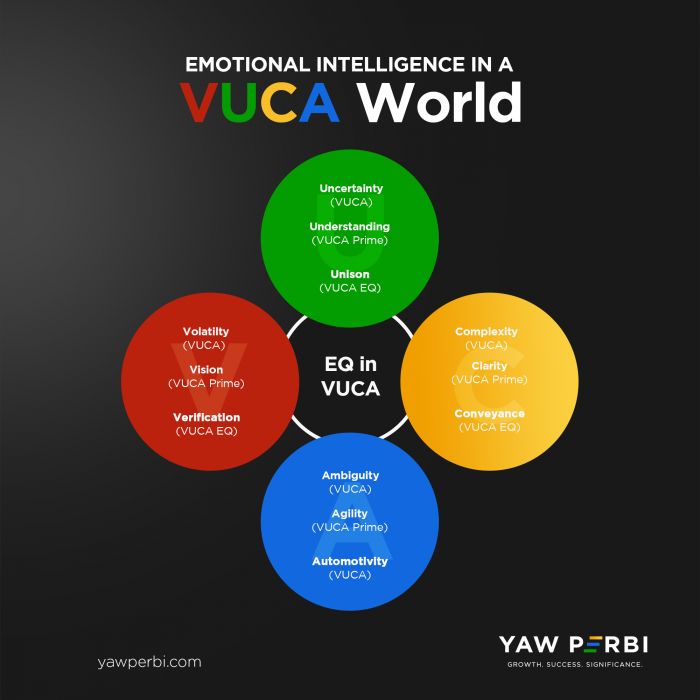
SO YOU THINK YOU CAN LEAD WITHOUT EQ IN A VUCA WORLD?
As one of the Pan African Cohort facilitators of BCA Leadership, I just got off a scintillating Zoom call with amazing African C-level leaders from across the continent—East Africa (like Kenya and Uganda), West Africa (I recall Nigeria, Sierra Leone and Ghana), North Africa (Egypt) and Southern Africa (Malawi, South Africa). We talked about Emotional Intelligence and the whole idea of VUCA. The goal of this blog is to summarize the essentials of the topic, which most participants described as ‘intriguing’: “So you think you can lead effectively without EQ in a VUCA world?” Really, this is a rhetorical question because no one in their right senses would say, “Yes, I can lead effectively without Emotional Intelligence (EQ)” in the first place, let alone in a world that’s described as VUCA.
WHAT ON EARTH IS VUCA?
VUCA is a term that came from the military space, especially at the end of the cold world war when without the two clear polarizing forces the whole world was described as Volatile, Uncertain, Complex, and Ambiguous. Guess what? If the end of the last century was said to be VUCA then imagine just how much more VUCA it is now. Look at the volatility of the world today, look at the speed of transformation, the dizzying digital economy. Consider the uncertainty with COVID-19 and this post-pandemic world. Is it even a post-pandemic or rather para-pandemic world as in some places it seems over and in others, COVID is still raging? Look at the complexity of the world. How could a microscopic virus emerge in a small place in some corner of the world called Wuhan, China, and the whole world gets grabbed into this? Some things are just ambiguous right now. It’s a VUCA world. There wouldn’t be enough space to write out all the feelings these VUCA times have generated in people, especially anxiety.
HOW ABOUT EQ?
Even before the VUCAness of the world, Emotional Intelligence had been identified as the key thing for succeeding in leadership. It is archaic 20th century thinking that IQ (intelligence quotient) makes a good leader for a total leader not only has IQ, in terms of book smarts or cognitive intelligence, but also Emotional Intelligence (EI/EQ) in terms of being intelligent about feelings and Global Intelligence (GQ). Humans like to think we are rational people but at the end of the day we are emotional beings. The term was first coined in 1990 by researchers John Mayer and Peter Salovey, but was later popularized by psychologist Daniel Goleman five years later.
We now know that 80-90% of success in Executive Leadership depends on Emotional Intelligence and not cognitive intelligence. Don’t get me wrong, I am not dumb. I am a medical doctor for crying out loud. Intelligence is important but guess what? When it comes to Executive Leadership, IQ only gets you into the door, it takes EQ to play the game. And win. After about 128, IQ doesn’t matter anymore! Given the same level of IQ, technical skills, and competence, it’s EQ that would make all the difference in how much one succeeds (or not).
Emotional intelligence, according to Psychology Today, is “the ability to identify and manage one’s own emotions, as well as the emotions of others.” It is thus made up of the following four blocks:
BUT THERE’S PROBLEM
So being the amazing leaders we are, we figured out we cannot just sit idly twiddling our thumbs and watch VUCA happen without responding. In 2007, one Robert Johansen (a distinguished fellow at the Institute for the Future), came up with a behavioral leadership model he called VUCA Prime to counteract each of the four elements of VUCA with a specific positive response which starts with the same four letters. VUCA Prime then is to have Vision over Volatility, to overcome Uncertainty let’s have Understanding, then Clarity over Complexity and to overcome Ambiguity let there be Agility.
Well, I have been studying this since the pandemic began and was thinking recently how good VUCA Prime is but how so very cognitive it is! Why is VUCA Prime so cognitive and does not take enough emotions into cognizance especially when we know 90% of success will depend on a leader’s emotional awareness (of self and others) and responses?
WHAT IS VUCA EQ THEN?
Consequently, I have designed something called VUCA EQ to provide a more comprehensive and potent leadership response to VUCA beyond the cognitive, one that significantly takes emotional intelligence into consideration. Like VUCA Prime, each of the VUCA EQ responses also begins with the same four letters.
Firstly, V is Verification: we need to be able to decipher what our emotions are and label them correctly. Then we need to be able to do the same for others as well so we can respond rather than just react, and we can manage our emotions and that of others instead of just trying to control them. The world of command and control is gone!
Secondly, instead of Uncertainty and just responding with the cognitive Understanding that VUCA Prime proposes, we rather respond in Unison. What I mean by Unison is to respond with our three brains. You have the cognitive brain but you also have your emotional brain called the limbic system. EQ is not just a ‘heart’ kind of thing, no! Emotional Intelligence has to do with the brain too. Or even more annoying, called ‘soft skills.’ EQ produces hard results on the balance sheet and cashflow statements! There is the Cognitive brain, Emotional brain, and Instinctive brain and VUCA EQ is about responding with all three in unison.
For Complexity, not only overcome with clarity but with Conveyance. Powerfully transmit emotional then logical information and carry across values and perspectives, considering emotional data and communicating emotions first. Remember to start with emotional data when decision-making and communicating eg. I feel vexxed about this decision and I’m aware most people in the company feel anxious…. Connect with emotions and convey them in response to complexity.
Then finally, for Ambiguity, not only thrive with agility but by Automotivity. In other words, learn to move people’s emotions or move people emotionally. Automotivity means containing within itself the means of propulsion or movement. Mobilize people in such consonance and resonance with what they want (motives) and how they want (motivations) that they move in a self-propelling manner. After all, why do you suppose feelings are called e-motions? Feelings move us, they move the world. We may not like to acknowledge it but they do. How do you learn to know people’s motives and their motivations so that you can ride on that to send them (better still, travel with them) to a place where they ought to go?
CONCLUSION
Leadership is in the transportation business. We move people from here to there and without the power of Emotional Intelligence to move people (think e-motions) towards a shared, noble purpose, we are going nowhere ourselves in the first place and taking no one with us for that matter. Don’t you ever think you can successfully lead, especially in this VUCA world, without Emotional Intelligence.

You Don’t Know What You’re Missing!

An August 2021 training for the Certified Professional Coach designation as a collaboration between Yaw Perbi (YP) Executive Education company and Wainright Global. We represented several U.S. states (from coast to coast), Canada, England, Ghana, Kenya, Romania, Rwanda and Uganda.
Growing up, my father was an ardent follower of the gospel singer André Crouch. Consequently I got indoctrinated early, hearing these songs from vinyl records at home and cassette tapes in the car. One of Crouch’s Christian apologetic songs that still rings in my mind today boldly claimed, “You don’t know what you’re missing until you’ve met the Lord!” Having met the Lord myself, I concur. But today, let me share what else you don’t know you’re missing.
I would really love to talk to you about the power of coaching. I say you don’t know what you’re missing because in my experience, most people don’t grasp the power of coaching, no matter how hard I try to explain the power of coaching to them until they have tasted it for themselves, even if it is a free 30-minute ‘chemistry session.’ It’s one of those you-don’t-know-what-you-don’t-know-until-you’ve-experienced-it kind of things. It really makes me to see the wisdom in sales strategies like the ones car salesmen employ, where they allow you to do a free test drive. As you sink into the comfort of those leather seats and cruise in that Mercedes, Range Rover or whatever, all of us a sudden you realize what you’ve been missing and that you really ‘needed’ this car, you just didn’t know it prior! (laughs)
MY BREAKTHROUGH
Until I got a coach myself, there were certain things like revising and expanding my old books that had stalled for ten years! All of a sudden, with the clarity that came from the socratic questioning and the power of accountability I got going, and have never turned back since. That was passive income and active impact I had been leaving on the table for a decade! This experience is one of the reasons I insist that even a coach needs a coach. Every leader needs a coach. In fact, every breathing human being needs a coach!
SISTER-SISTER
At Yaw Perbi (YP), C-level/C-suite executives are our strong suit. One of our earliest encouragements in our coaching practice was when a Vice President of a significant global mining firm who had been cautiously optimistic about coaching signed up to try it for six months. By her first couple of sessions she was enjoying the benefits of coaching–the inspiration, clarity of thought, transformation, skills, resources, accountability etc.–so much that she offered to give her best friend, an engineer with a multilateral organization, a birthday gift of a six-month coaching package from YP.
While I wait to share their powerful testimonials with you via video powerful 1-2 minute videos, here is a short and impressive one-minute video of Dr. Chinweike Eseonu, a Nigerian coaching client resident in the United States. This former professor of engineering at Oregon State University met his 12-month coaching goal in half the time, through our coaching! Again, his too was a six-month gift from his sister, a medical doctor in the States. Chinweike and another coaching client in the United States have both met their coaching outcome to find new jobs that they are passionate about and which pay them much better. In fact, the other coaching client has had a 51% pay raise in her new offer, which also affords her an opportunity to move from her current state of Texas to Wisconsin, away from a lot of bad memories from a hard divorce.
HELP US HELP PEOPLE KNOW WHAT THEY’RE MISSING
Friend, if you’re not being coached, you are missing out a lot! Get coached today! One of the things we want to ensure does not become an excuse is, “well, there are not enough good, certified coaches around.” Also others like, “I cannot find one I have good chemistry with” or “there’s none within my budget.”
At our executive education company, we are on a coaching revolution to see every leader being helped to authentically live and optimally make decisions by training and certifying 60 Certified Professional Coaches (CPC) between August and December who will then impact another 700-800 leaders by the end of the year.
So apart from getting coached yourself, if you are someone who loves people, loves to see people develop, if you have the patience to listen to others without judgment and create a safe space where through your powerful, socratic follow-up questioning they can clarify their thoughts and desires regarding their lives and goals and provide the accountability for follow-through, then why not get trained and certified to help others in this way? It is a great way to make impact and income simultaneously.
The are people waiting for you to help them, from ‘the least of these’ to the highest flying leaders. Every leader needs a coach, and I’m proud to be part of the biggest network of coaches in Africa, Breakfast Club Africa, with the big dream that one day every African president will have a coach. The continent will not be same; you won’t recognize the African continent because not only will these leaders be supported to make optimal decisions and to be authentic leaders, they would have the framework for voluntary accountability to deliver what they have said to themselves (let alone to the masses) that they want to accomplish.
Below is the information for the next round of training and certification on September 25 & 26, 2021. Join the revolution! Register now, here.
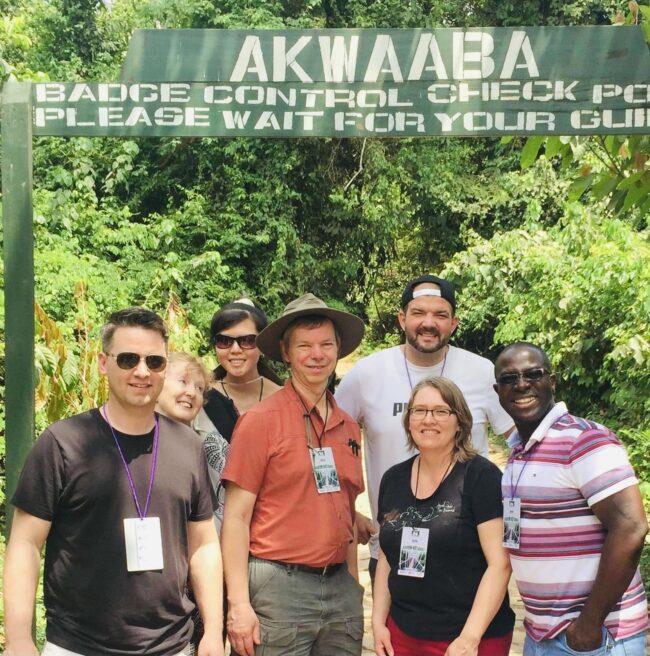
When to Leave the Dance Floor.
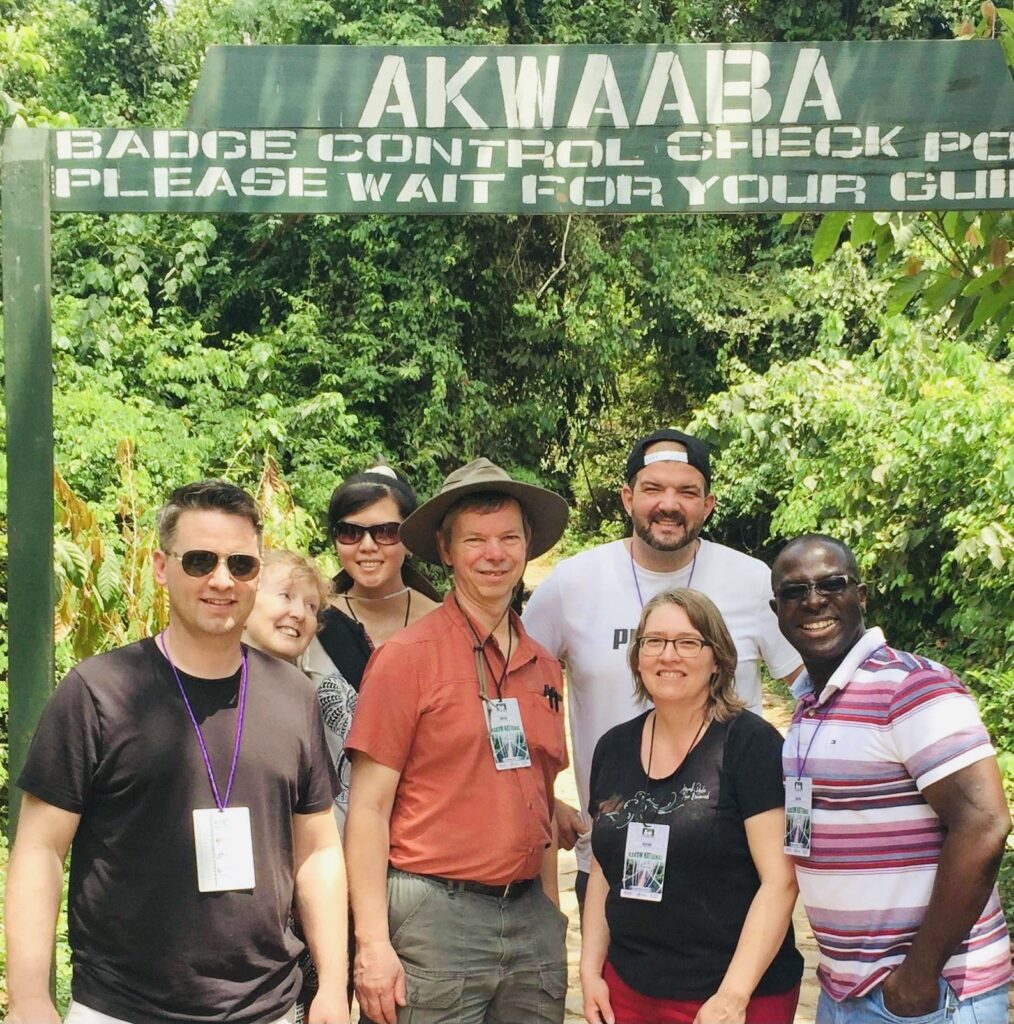
Visiting the Kakum National Park in Ghana with my senior leaders, hailing from six different cities in Canada. Fun fact: the famous canopy walk at this park was built by two Canadian engineers, assisted by a Ghanaian crew.
This month I clocked eight years as president and CEO of a strategic Canadian charity in the international education space. I was headhunted for the role and felt privileged to be the first ever black president of our almost 40 years old organization. We provide hospitality, faith exploration opportunities and leadership development for the over half a million international students in Canada to be empowered to impact the world. I’ve had the privilege of leading about 90 incredible staff across 23 cities from coast to coast–Canada is the second widest country on earth after Russia–and oh yes, we have a staff family serving in Australia too.
SO WHY ARE YOU LEAVING?
In the first couple of years under my leadership, we grew by about 70% (short of my 100% goal) in new staff and new fields, expanding into about a dozen new cities, extending coast to coast for the first time in the organization’s history. There’ve been many more exciting things that have happened, including seeing such a rich diversification of our staff to about 15 nationalities. One of my greatest joys has been to see former international students becoming leaders of our work in cities, regionally and even in senior leadership. Every quarter we chronicle story upon story of incredible impact on students/scholars by staff and volunteers and impact of our students and alumni around the world, from Australia to Zimbabwe! We’ve seen an organization little known organization gain significant recognition in the international education space in Canada and abroad. Together with the leaders and staff, we worked to move organizational health from OK to healthy to flourishing (as independently adjudged by a third party firm). When I hear of CEO versus board tussles I cringe and thank God that this has been far from my experience. I’ve had such a congenial and synergistic relationship with the board, which has rotated through four chairpersons over the period I’ve been president.
If everything is going as well as I claim, then why am I leaving? My work is done! I believe every leader has a particular purpose to a particular people in a particular place for a particular period and when your work is done, you pack up and go, leaving the place and people better than you found them. I had initially been approached for this role in late 2012 and had laughed it off, especially since I was not only running The HuD Group, which had just received charitable status in Canada, but was also doubling as interim pastor for the Montreal Chinese Alliance Grace Church. Eventually I did take the five-hour flight from Montreal to Calgary to interview with the board. When Anyele and I prayerfully decided to make some adjustments and finally accept the board’s offer, I specifically stated that I planned to do this presidency for three to five years. In fact, I ensured it was clearly spelt out in the documentation. Well, guess what? It’s been three plus five years. It’s time to go!
MUSIC AND DANCING WITH GRAPHS
It is time to leave because my particular purpose to a particular people in this particular place for this particular period is done. As a wise saying in Africa goes, you leave the dance floor while people are still enjoying your dance. What Africans say so well idiomatically, Westerners tend to express graphically. So below is a pictorial illustration of what I’m saying.
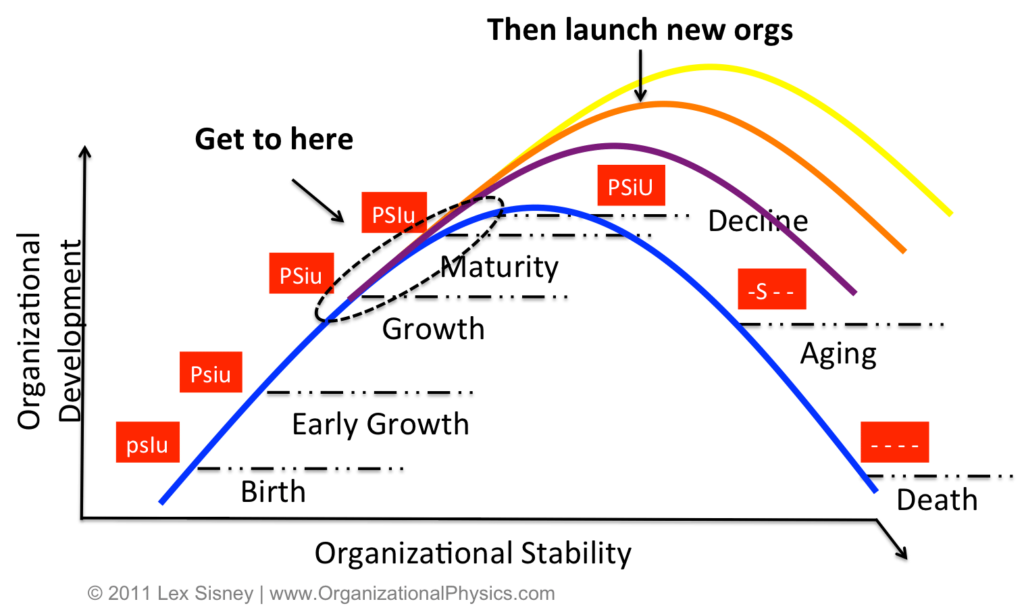
Just before the peak is when your dance is still being enjoyed. That’s when you leave the dance floor.
While the above graph refers to the life cycle of any organization per se, it is similar to the organizational leader’s cycle too. Don’t wait to peak, let alone to get into decline and eventual death. That is not great for your leadership but even worse, not good for an organization you supposedly believe in (and even love). Just before the peak is when you collaborate with the ‘DJ’ (stakeholders) to start another song i.e. launch another initiative, start a new programme, launch a new organization etc. Just before the peak is when your dance is still being enjoyed so you either start another song or gracefully leave the dance floor!
By the time one hits the peak itself, you are stretching it. Folks are beginning to get tired of your moves. After the peak, it’s all downhill, babe! And no matter how hard you dance (in spite of how very tired you might be) no one’s excited anymore. Not only have eyes started rolling all the way into the head, some may even have begun yawning by now. Bored. Yet, some leaders still don’t get it! Whether it’s because of the adrenaline rush on the dash floor or the perks of the position, they keep dancing and dancing and dancing, while they keep losing the audience until the music is over! Some even keep dancing after the music is over, dancing to the music in their heads. It’s a fight together them off the dance floor! If you don’t leave the dance floor while people are still enjoying your dance, at least leave while the music is still playing! Worst case scenario, far from ideal, leave when the music is done.
A POLITICAL CONCLUSION
Knowing when to leave the dance floor is more of an art than a science; it’s a soft thing akin to discernment and intuition. The greatest leaders like Nelson Mandela have it; they just know. When everyone was urging Madiba to do a bonafide and very welcome second term in office as South Africa’s first black president who had had a good run, he declined. “No, please.” Nelson Mandela left the dance floor while we were all not only still enjoying his dance, we were urging him on for more moves!
Knowing very well that some leaders wouldn’t have what it takes to leave the dance floor even when it’s obvious, many spheres of society have term limits on executive roles. Most political jurisdictions have a maximum of two four-year terms. As an African, I’ve been embarrassed by how many of our leaders haven’t had what it takes to gracefully leave the dance floor while we were still enjoying their dance. Mandela, unfortunately, is more of an exception than the rule. As a former United Nations peacekeeping soldier, I’ve tasted first hand the horror of the ravages of civil strife and war when leaders don’t want to leave the dance floor even after the music is over. I hate it!
I join those concerned about the “pandemic of ‘third terminism‘” in Africa, including in the West African country I served in as a U.N. Peacekeeper from June 2008 for a year and lost two of my medical colleagues to death. Oxford defines ‘third terminism’ as the phenomenon of leaders seeking to break constitutional term limits—usually set at two terms in office—to secure a third term in office. The phrase has also been used more broadly to refer to leaders who refuse to leave power. This isn’t uniquely African; it is simply human. Recently, Putin has done it in the east and in the west, Trump did not want to leave the floor when his music was over. In fact, it was Franklin D. Roosevelt’s ‘third terminism’ (he won, even a fourth!) and the popular fallout about the concept of a long-term president that led to the ratification of the 22nd amendment in 1951 that “No person shall be elected to the office of the President more than twice…”
According to the National Constitution Centre, “Franklin Roosevelt wasn’t even the first Roosevelt to seek a third term in the White House. His distant cousin, Theodore Roosevelt, ran unsuccessfully as a third-party candidate in 1912, after declining to run in 1908. President Ulysses S. Grant also sought a third term in 1880, but he lacked enough party support to get a nomination.”
George Washington, the first U.S. president, had set the two four-year terms maximum precedent in 1796 when he declined a third term. In 1799, a friend urged Washington to come out of retirement to run for a third term. But as I earlier asserted, the greatest leaders know when to leave the dance floor–and stay off! Washington’s voluntary decision to decline a third term, like Mandela’s voluntary decision to decline a second, was apparently seen by many people as a safeguard against the type of tyrannical power yielded by the British crown during the Colonial era.
In my next article, I shall share about how to leave the dance floor in grand style (some call it ‘succession management’). In the mean time, you, my friend, now know when to leave the dance floor–at best when people are still enjoying your dance; or at least, while the music is still playing!

